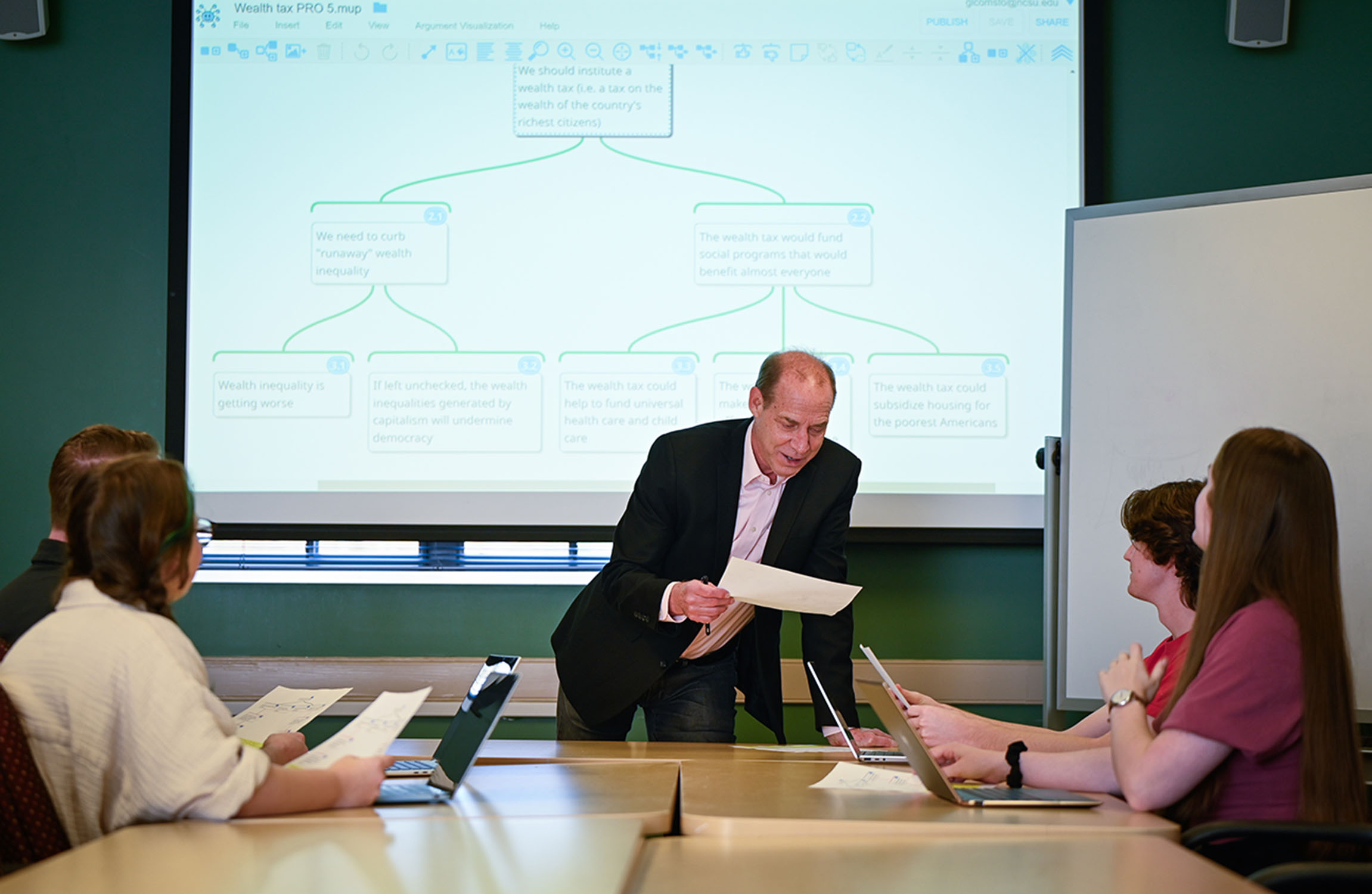Lauren Kirkpatrick, Alumna
 My work as director of communication for the College of Humanities and Social Sciences keeps me more than a little busy. I am a team of one. My main task is to tell our college’s stories, and there are more great things going on here than one person could possibly share.
My work as director of communication for the College of Humanities and Social Sciences keeps me more than a little busy. I am a team of one. My main task is to tell our college’s stories, and there are more great things going on here than one person could possibly share.
I publish news of our students, faculty, staff, and alumni and in so doing, work to raise the visibility and reputation of the college both within the university and in the wider community. I could work all day and all night every day and still not feel that I’m done.
I had all the reasons in the world not to pursue a MALS degree. For one, I already have many years of experience working in nonprofit organizations and as a freelance writer. Then there’s the rest of my life. Outside of work, I have a family and friendships to nurture. Projects and volunteer commitments to see through. Stacks of books to read. Places to explore. I also know I need down time to breathe, walk, relax, think, play, and renew myself.
But I wanted to keep learning, to stay creative and flexible. I wanted to feed my curiosity, hone my skills, and nurture my intellect to bring my best self to my job.
I dipped my toe in to graduate work by enrolling as a post-baccalaureate student and taking a global warming seminar with Keith Earnshaw. That experience helped me decide that graduate study in a liberal arts program could help me balance my work life with some intellectually stimulating, structured inquiry. And that maybe I wasn’t too old to go to school.
Next I signed on for a graduate class in the Department of Communication covering theories of human communication. I was completely daunted at the outset of the class. I had never taken a class in the field of communication. Although I had been “doing” communication for many years professionally, I felt completely ignorant about the formal field of study, and about the theories that backed up my intuitions and decisions. Nearly all the other students in the class were in their mid-20s and held undergraduate degrees in communication. I didn’t know Social Judgment Theory from Uncertainty Reduction.
The class was both challenging, and rewarding. Jessica Moore, our professor, pointed the way, likening herself to an annoying backseat driver while we drove our own vehicles of intellectual inquiry. A particular bonus for me, both as a student and as the CHASS communication director, was the variety of guests she brought to speak to us: other faculty from the department who talked about their research and about their personal and professional journeys.
I also thoroughly enjoyed the diversity of people in my class: three were here from China to earn their degrees; one was from India. They brought fascinating perspectives to our discussions. One of my classmates had taught in a public school for several years. Another worked for a publishing firm. Several were in public relations. One was a PhD candidate in the CHASS Communication, Rhetoric, and Digital Media program. Liberals (like me) exchanged perspectives with several African-American Republican women, a Libertarian, political neophytes, and individuals with no particular political persuasion in our election-season class. Where else would I find this eclectic group—all working to understand common themes, all engaged in a common pursuit of knowledge—but in a classroom? I am proud to say I can now also describe both Uncertainty Reduction and Social Judgment Theory.
As I got my graduate student sea legs under me, I realized that being in a classroom was helping me explore the world and my place in it. I was exposed to other people’s perspectives—not the idle, surface chatter from coffee hours or cocktail parties, but thoughtful, informed opinions. I was forced to form and articulate my own unique opinions and points of view.
I am interested in how we communicate who we are as individuals, as groups, in organizations, and across history. I wanted to know more about our human need to share our individual stories. I also wanted to know how and why as cultures and peoples we define ourselves by our myths and tales. I was—and remain—curious about how we choose the stories we pass on through the generations.
I geared my MALS studies toward these ends, taking courses that helped me look at the art of storytelling as well as the human drive behind storytelling. I took several history classes, including an oral history course with Professor Blair Kelley, who became my adviser. For my final project, I wrote “The Stories that Define Us: One War Child’s Story,” based on my father’s experiences as a child in England during World War II. He was evacuated from his village, and separated from his family, at a young age … But that’s a story for another time.
My MALS coursework let me pursue my interests in storytelling and kept me challenged and curious. My studies let me explore the art of storytelling – and the fine lines between fiction and nonfiction, fact-telling and truthtelling – through novels, poetry, oral history, documentaries, memoirs, and other narrative forms. I am grateful for the opportunity to study alongside other curious students and with faculty who were engaged in and passionate about their areas of concentration. Graduate school is challenging and demanding, no question. But for me, it was well worth the effort. And my stories continue to unfold.


